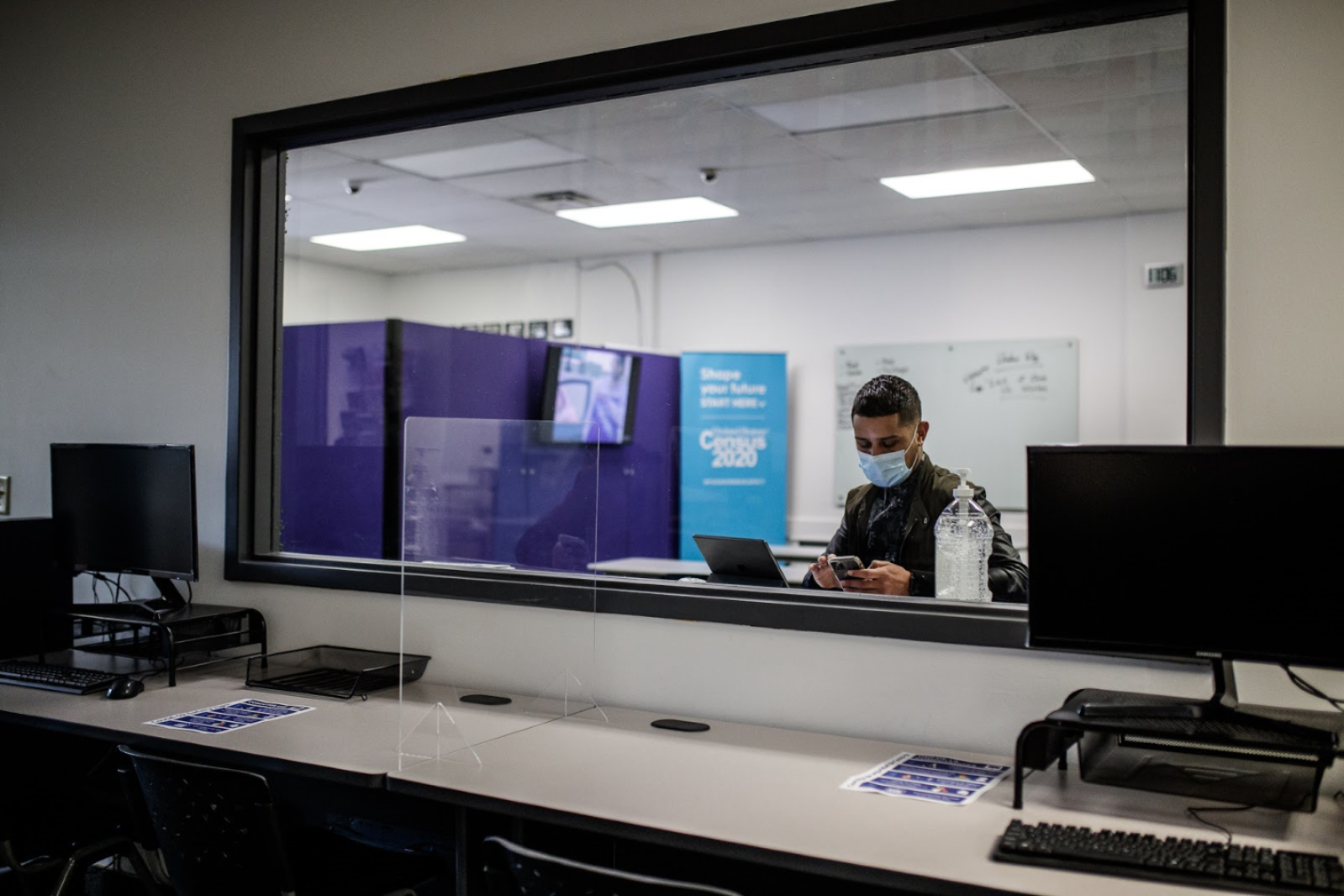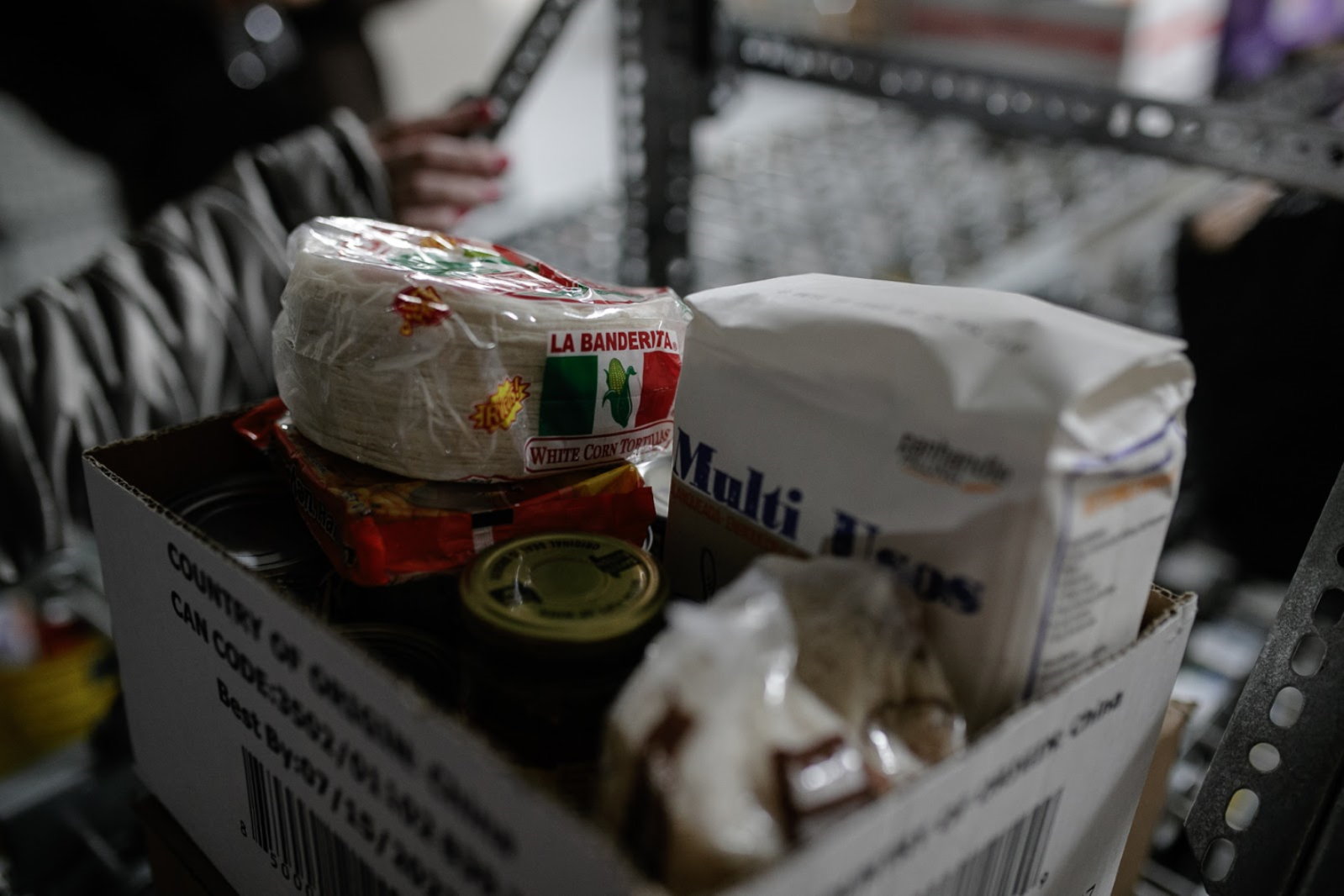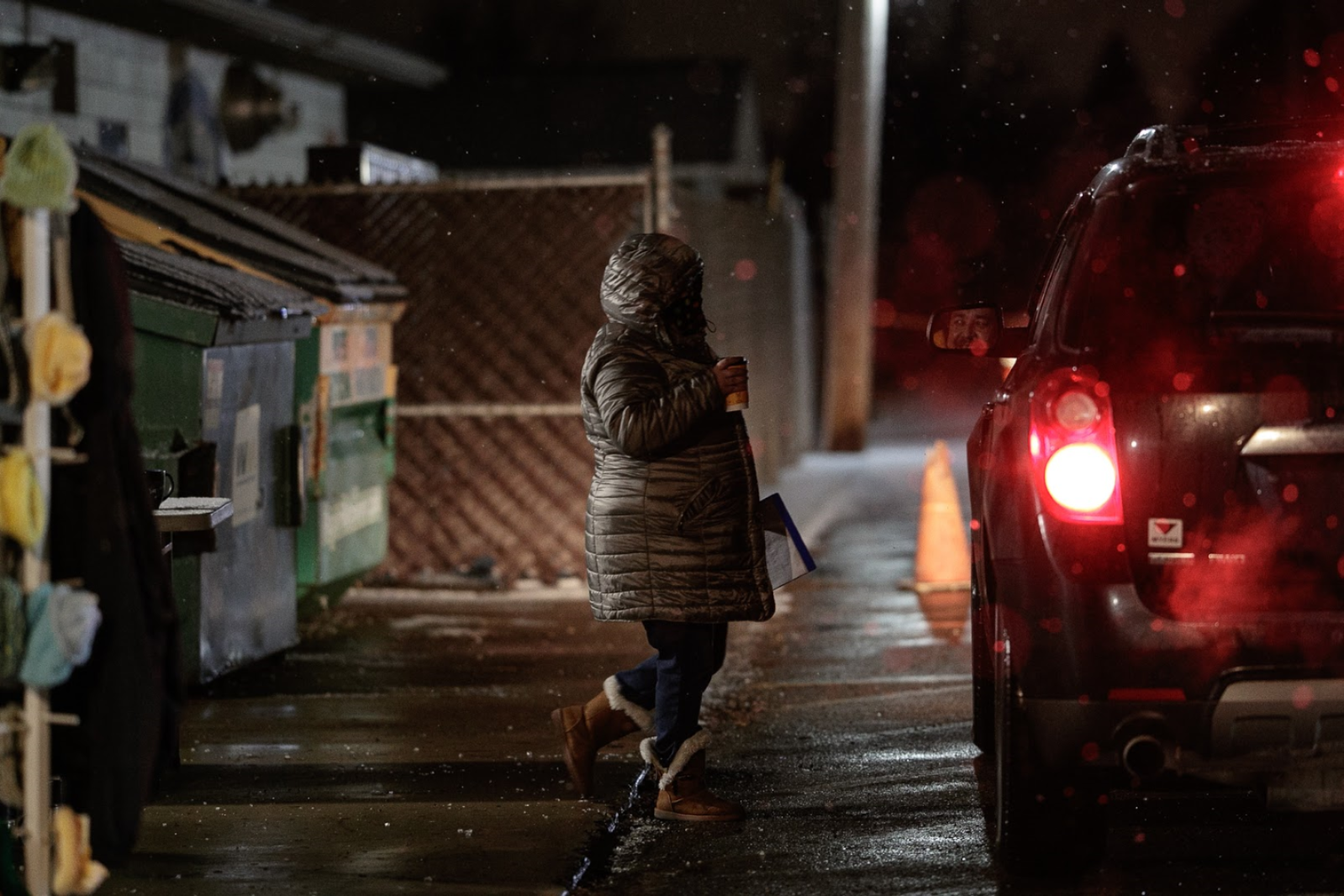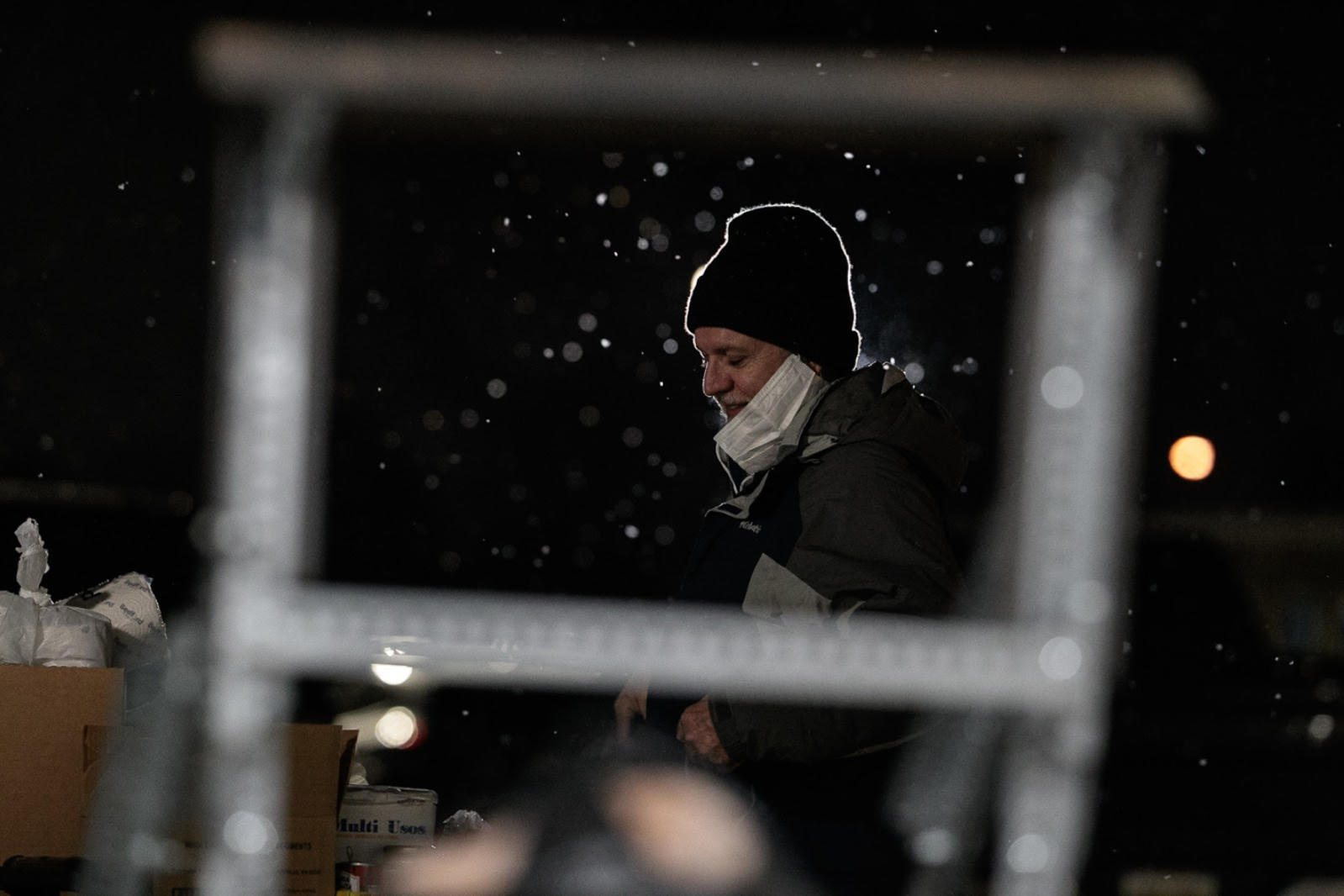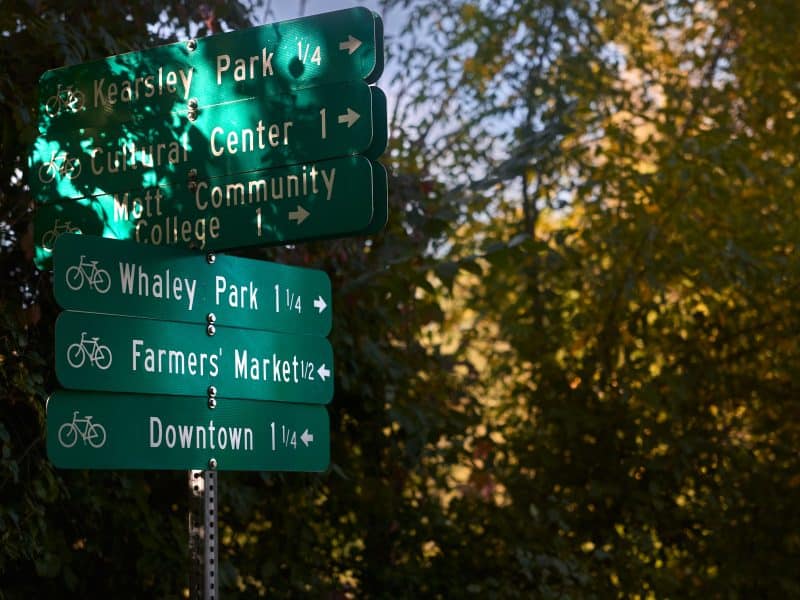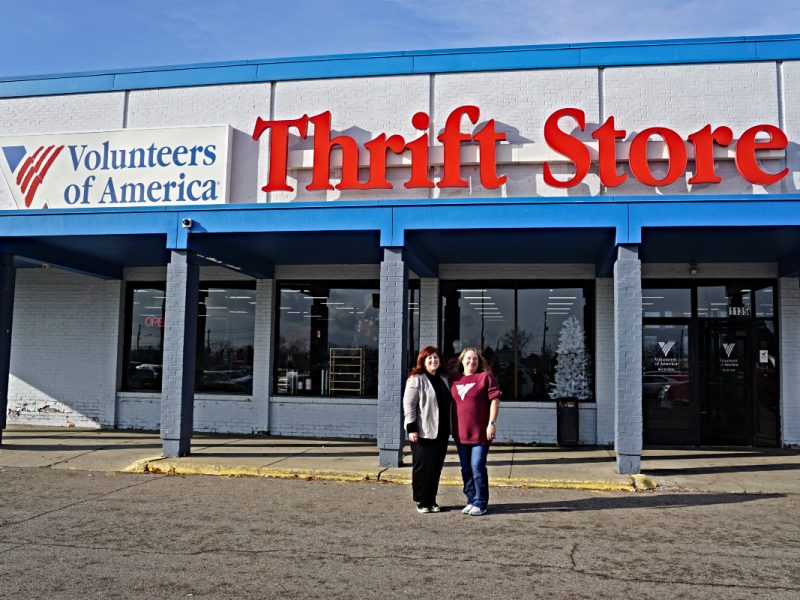Conozcan los tres lideres de la Latinx comunidad ayudandao familias en Flint
Meet three leaders of the Latinx community in Flint helping migrant families find hope.
FLINT, Michigan — Here is just one story from the many people Victoria Arteaga has helped working as an immigration attorney for the Latinx community in Flint.
“I will tell you this brief story of a young lady that we [The International Affairs Center] helped for a little while. Her mother had a small stand in a third world Hispanic country. A gang came to her mother one day and said, ‘This is how much money we are going to need from you.’ Her mom said, ‘I don’t have any money and I don’t make enough money to even feed my family.’
“The gang said back to her, ‘We are coming next week and you better have the money.’ They came the following week and she said she didn’t have it. They shot her in the little stand with her daughter and grandbaby standing there. They shot her and she died.
“They came the next week and they said to the daughter, ‘You better pay us the money we want. We are coming back next week and you better have the money or your daughter is next.’ They killed this young woman’s mother and were going to kill her daughter too. She told me she packed whatever she could carry and took her child and they walked. It took her about six weeks, walking, to get to a border.”
Immigrants are often isolated, misunderstood and suffer a great deal. Immigrants leave their homes, their language and their culture behind to find asylum in search of a more hopeful future in the United States. However, immigrants often find new and difficult obstacles once coming to the U.S.
The Latinx community is often in desperate need of resources. According to the U.S. Census Bureau, 3.4% of the population in Genesee County is Hispanic. The Latinx community often goes unheard and looked over, but they are fundamental to the history and success of the city of Flint.
Arteaga is one the leaders and voices for the Latinx community working as a team with Asa Zuccaro, executive director of Latinx Flint, and Aurora Sauceda of Latinos United for Flint to fight the disparities and obstacles that the Latinx community in Flint faces.
“If we don’t know our history, we will think that we don’t have one,” Zuccaro stated.
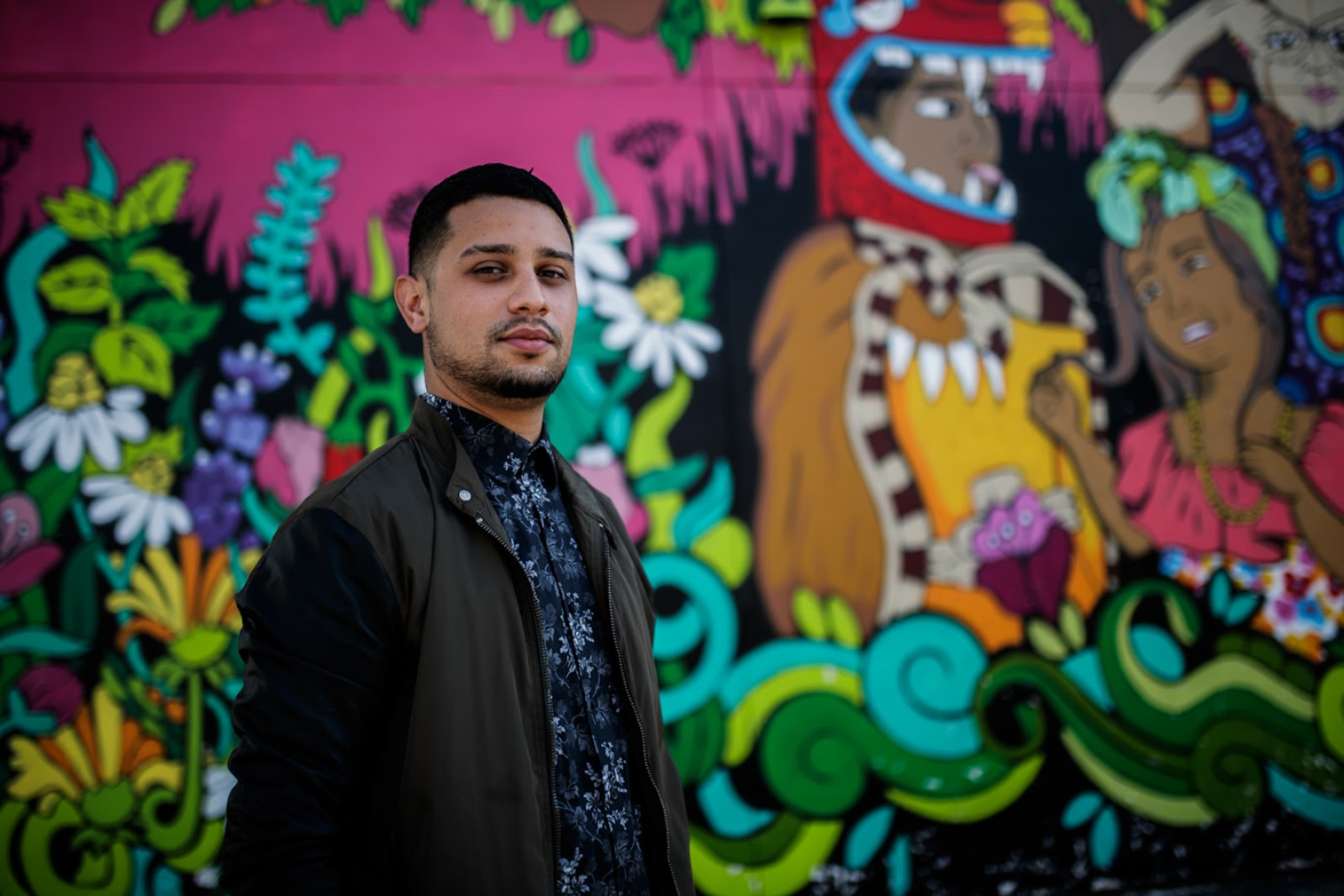
Asa Zuccaro, the executive director at the Latinx center in Flint, has made a space that connects and shares Hispanic culture while also providing essential services.
Zuccaro grew up in a home with an Italian father and a Mexcian mother, “Two amazing cultures with delicious food,” he said. In college he majored in psychology and African studies and began to see the history of America through an Afro-centric lens and not a Euro-centric one.
“Out of that experience I was very curious to learn more about my own heritage and culture,” he said. “The only thing I knew is kind of what we see that’s projected … That somehow Latinos are impoverished or dangerous because they’re part of the cartel or something. A lot of the things I had been taught are a lie. So I wanted to see for myself because I didn’t believe it any more,’ Zuccaro stated.
Zuccaro traveled to Veracruz, Mexico, to dive deeper into his culture and his history.
“I learned so much and I have a much stronger sense of my own identity,” he said. “I was surprised to see how many prejudices against myself or my own identity that I held. At that time I was sure I didn’t have any, but it really breaks it down when you’re in a country full of people who look like you.”
Two and a half years ago, Zuccaro started at his position at the Latinx Center. “Our community should not be subjected to minimal investment,” he said. “I wanted to make a place in Flint that you could feel or experience something that you don’t get to normally.”
His initial goal was to have a center that the Latinx community could be proud of and want to visit.
Zuccaro is determined to also raise awareness to the issues Hispanic populations face not only nationally but in Flint as well. When the water crisis first hit Flint, parents were calling Zuccaro at the center asking how they could support their children and what to do because they did not speak English. “Those calls crushed me. I try not to, but I almost take on that helplessness,” Zuccaro said.
Zuccaro works wholeheartedly and has created a center that provides culture, hope and a hub that is a source to people seeking help. One of the amazing partnerships Zuccaro is able to create for the Latinx population is help with immigration issues. Zuccaro works closely with Arteaga.
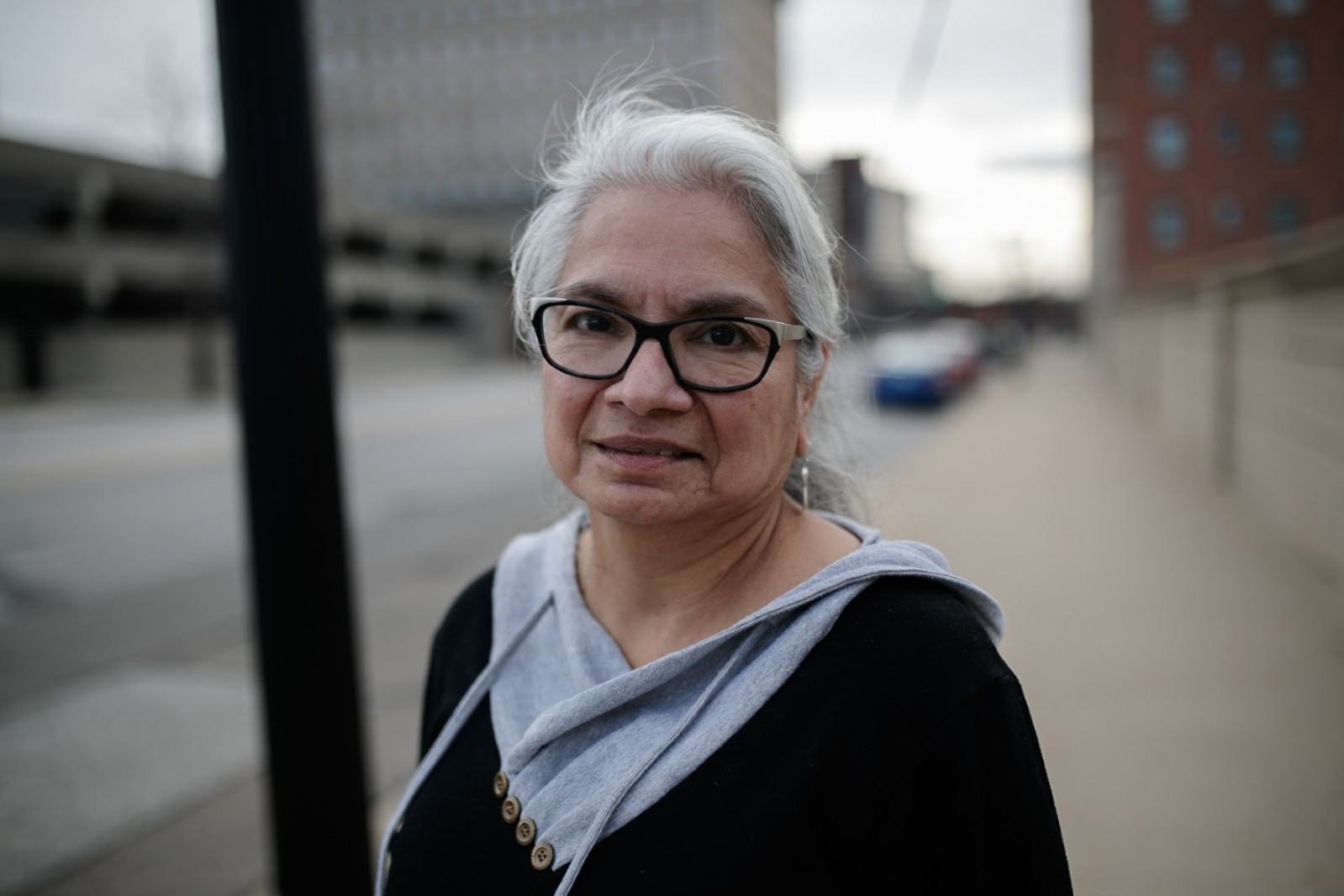
Victoria Arteaga, an immigration attorney, also created local outreach programs to help with food and funding for the Latinx community.
“I grew up steeped in that idea that you help those who come after you and you hope they will help the people who come after them,” Arteaga stated.
Arteaga still remembers watching her dad up late at night, sitting at the kitchen table studying English as a second language. Her parents were also heavily involved in the International Institute of Flint and helped whoever they could in the Latinx population.
After Arteaga retired from General Motors she went back to school and studied law. “I’ve been active in my church and the Hispanic community where I can be for a long time,” she said. “There are people in my community who need help and aren’t going to get it anywhere else.”
There are many misconceptions on why migrants come to America and unfortunately these misconceptions make Arteaga’s work an ongoing challenge.
“There seems to be this idea that we are here to get free stuff from the government and that we are taking that away from American citizens that really need assistance,” she said. “I don’t know how many times I have said, no, the only people who get to take advantage of you that way are other U.S. citizens.
“So many people come and want to know what they can do for their mother or family. If you have not entered lawfully or ever been here lawfully there is, most of the time, nothing anyone can do for you. If you’ve never been here with permission there’s generally nothing anyone can do. There’s not a way to sponsor someone who has never been here lawfully and that’s the most difficult thing to explain to anyone.”
Under the Trump Administration, asylum laws have changed, making Arteaga’s job increasingly more difficult.
“Immigration has become limited and in some courts the denial rate is 99%,” she said. “I think people do come here for fiscal reasons, I won’t argue that, but there is a vast number of people who come here because they don’t want to be killed. There are families whose children are threatened every day, ‘Join our gang or we are going to kill you or we are going to kill your parents.’ You don’t want something to happen to your children, so what do you do? What can you do? You pack your things and you run.”
Some immigrants are able to obtain legal residency, a work visa or school visa, but their struggles continue regardless.
The major issues that Arteaga has witnessed Hispanic immigrants struggling with is finding work, healthcare, and overcoming the language barrier. Her passion for the Latinx community has also motivated her and her husband, Deacon Omar Odette, to create an outreach program at Holy Redeemer Church. Arteaga has also been able to obtain a third grant to help fund the program as well.
Every Thursday from 6-8 p.m., Arteaga and a small group of volunteers put together food boxes and distribute them to families in need. Spanish-speaking volunteers are able to effectively communicate with the families coming to pick up the boxes of food.
Arteaga loves to add a little flare to the boxes that are distributed. “We have a little corner where we make the Latinx boxes where we add a few things that I’ve collected that is more culturally normal for them (beans, rice, flour, jalapenos, and corn tortillas). So it’s their little prize. So that’s what we do there. It’s working out pretty well,” she said.
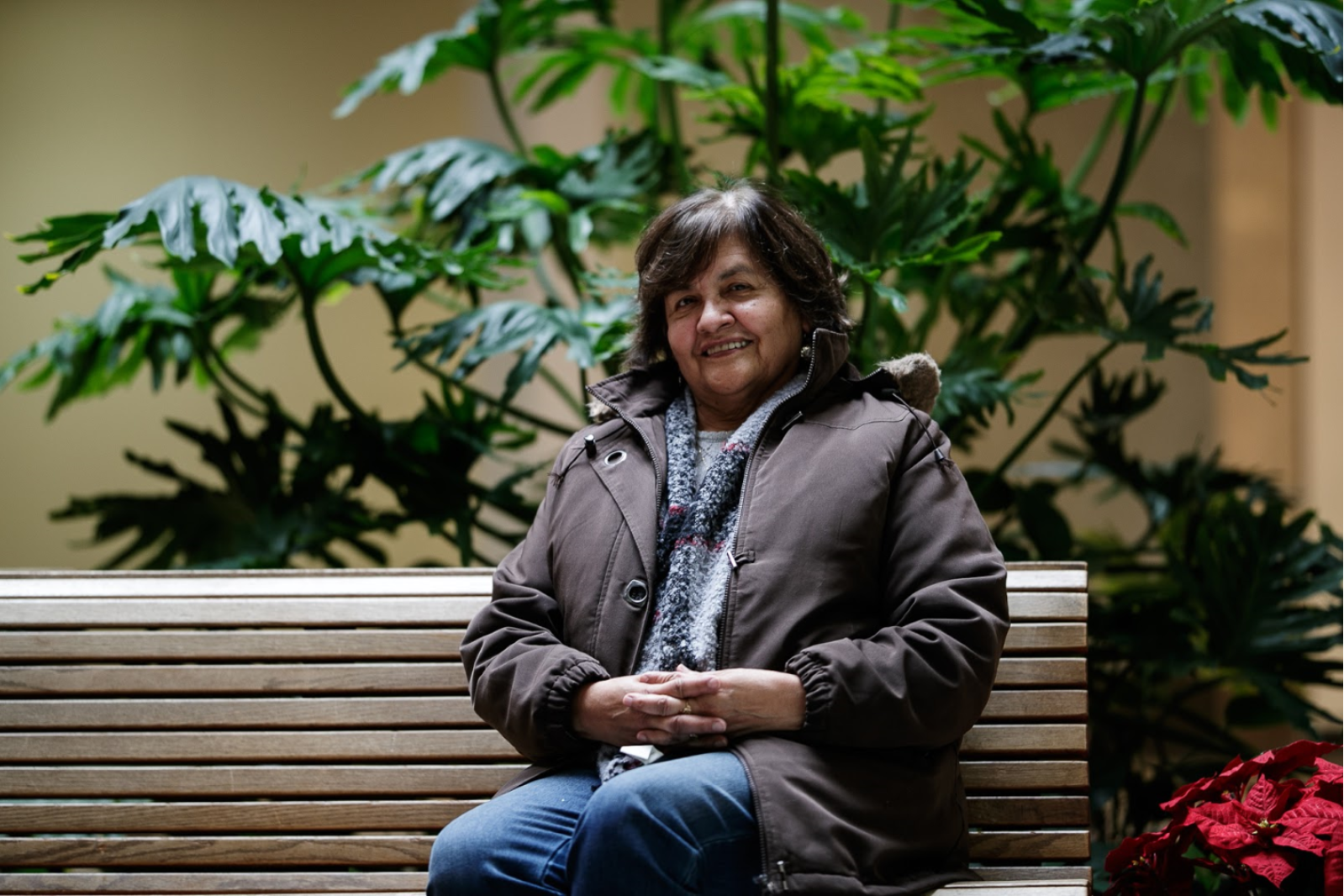
Aurora Sauceda is the Community Coordinator for Latinos United for Flint, “Everything I do, I do in honor of my grandfather and my mother.”
A member of the outreach program that helps service the Latinx community is Aurora Sauceda. Sauceda has been working closely with the Latinx community for several years, but her groundbreaking work started during the Flint water crisis.
In May of 2016, the Civil Right Director from the city of Flint contacted Sauceda and Odette about the gap of information that had not been clearly provided to the Spanish-speaking families in Flint.
Sauceda was able to obtain grants and organize a plan for the community that made sure Hispanic families were given water, proper information in Spanish on the crisis, and figure out what health services the community was in need of.
Sauceda has worked closely with the EPA, DHHS, and the state and local health departments. She also was able to translate messages from then-Flint Mayor Karen Weaver to the Latinx community during the height of the water crisis.
“I truly believe when you’re working for the community everybody’s a leader. You can’t do everything on your own. I have been so fortunate to have so many people in my group who have been so supportive.”
Sauceda struggles with how the Latinx community is often maligned. “I think that a major misconception of the Latinx community, not all, but certain individuals, the undocumented, are here to take advanage of the system. It is totally the opposite,” she said.
Instead, there are many injustices facing the community. When the first stimulus checks were being distributed, families were calling Sauceda and asking, “Why aren’t my children getting assistance? If my wife is a citizen, why are we not getting it? Because I am not a citizen? That’s just not right. I just wish people would understand that we are all human beings and we should all be treated like human beings.”
Migrant workers pay into Social Security, pay into the Medicare program, and will never see these funds in their lifetime. “I wish people would understand what kind of life immigrants were living in their countries and what they risked to come here,” she said. “Had my mother decided that she was going to stay in her little village with my grandfather, what would have happened to me after that? Perhaps I wouldn’t be alive anymore. It’s not an easy life there.”
These three leaders work with countless other team members, families and friends that all seek to help the Latinx community in Flint. Arteaga, Zuccaro and Sauceda are passionate about their work. They are the voices for the unheard and the undocumented. It is their strength, their ancestors and their culture that drives the support system they’ve created.
Without their efforts Latinx families would have been lost during the water crisis, immigration services would only be found rendered in cities at least an hour away, and families would be left hungry. These three leaders provide hope.
“I think what gives me hope is that the Latinx community doesn’t give up. We don’t give up,” Sauceda said. “ We try to see the positive side to things and accept things for what they are.”

